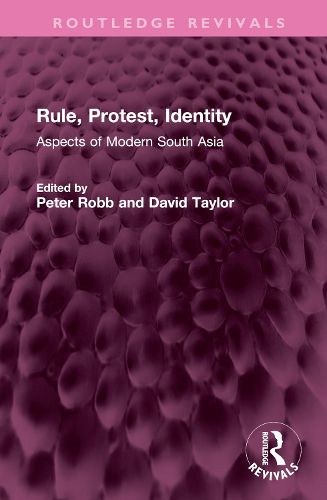Readings Newsletter
Become a Readings Member to make your shopping experience even easier.
Sign in or sign up for free!
You’re not far away from qualifying for FREE standard shipping within Australia
You’ve qualified for FREE standard shipping within Australia
The cart is loading…






First published in 1978, Rural, Protest, Identity consists of eleven essays on modern South Asia. Its concern is with the diversity of the region, to suggest how its study may be enriched by the juxtaposition of various disciplines, and in particular through the examination of familiar subjects from less familiar points of view. Four papers deal with the ruling of modern India. One examines the relationship between the British government and an Indian state, one the legal implications of the emergency under Mrs. Gandhi, and two the role of civil servants in the formation of Indian government policy. Four more papers deal with aspects of protest movements: one with British Ceylon, one with a follower of Gandhi, and two with Gandhi himself. Three final papers treat questions of identity from literary or linguistic standpoints. Two discuss ideas or stereotypes as expressed in famous books, and the third considers a linguistic movement in Pakistan. This book will be of interest to student of South Asian studies, history, economics, literature and political science.
$9.00 standard shipping within Australia
FREE standard shipping within Australia for orders over $100.00
Express & International shipping calculated at checkout
First published in 1978, Rural, Protest, Identity consists of eleven essays on modern South Asia. Its concern is with the diversity of the region, to suggest how its study may be enriched by the juxtaposition of various disciplines, and in particular through the examination of familiar subjects from less familiar points of view. Four papers deal with the ruling of modern India. One examines the relationship between the British government and an Indian state, one the legal implications of the emergency under Mrs. Gandhi, and two the role of civil servants in the formation of Indian government policy. Four more papers deal with aspects of protest movements: one with British Ceylon, one with a follower of Gandhi, and two with Gandhi himself. Three final papers treat questions of identity from literary or linguistic standpoints. Two discuss ideas or stereotypes as expressed in famous books, and the third considers a linguistic movement in Pakistan. This book will be of interest to student of South Asian studies, history, economics, literature and political science.